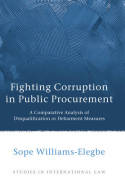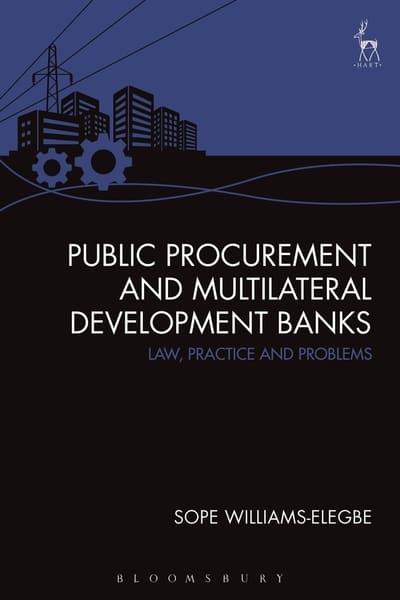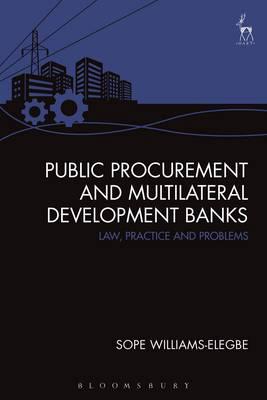Fighting corruption in public procurement
a comparative analysis of disqualification or debarment measures
- ISBN: 9781849460200
- Editorial: Hart Publishing
- Fecha de la edición: 2012
- Lugar de la edición: Oxford. Reino Unido
- Colección: Studies in International Law
- Encuadernación: Cartoné
- Medidas: 24 cm
- Nº Pág.: 356
- Idiomas: Inglés

Anti-corruption measures have firmly taken centre stage in the development agenda of international organisations as well as in developed and developing countries. One area in which corruption manifests itself is in public procurement and, as a result, States have adopted various measures to prevent and curb corruption in public procurement. One such mechanism for dealing with procurement corruption is to debar or disqualify corrupt suppliers from bidding for or otherwise obtaining government contracts. This book examines the issues and challenges raised by the debarment or disqualification of corrupt suppliers from public contracts. Implementing a disqualification mechanism in public procurement raises serious practical and conceptual difficulties, which are not always considered by legislative provisions on disqualification. Some of the problems that may arise from the use of disqualifications include determining whether a conviction for corruption ought to be a pre-requisite to disqualification, bearing in mind that corruption thrives in secret, resulting in a dearth of convictions. Another issue is determining how to balance the tension between granting adequate procedural safeguards to a supplier in disqualification proceedings and not delaying the procurement process. A further issue is determining the scope of the disqualification in the sense of determining whether it applies to firms, natural persons, subcontractors, subsidiaries or other persons related to the corrupt firm and whether disqualification will lead to the termination of existing contracts. The book compares and contrasts the legal, practical and institutional approaches to the implementation of the disqualification mechanism in the European Union, the United Kingdom, the United States, the Republic of South Africa and the World Bank.








